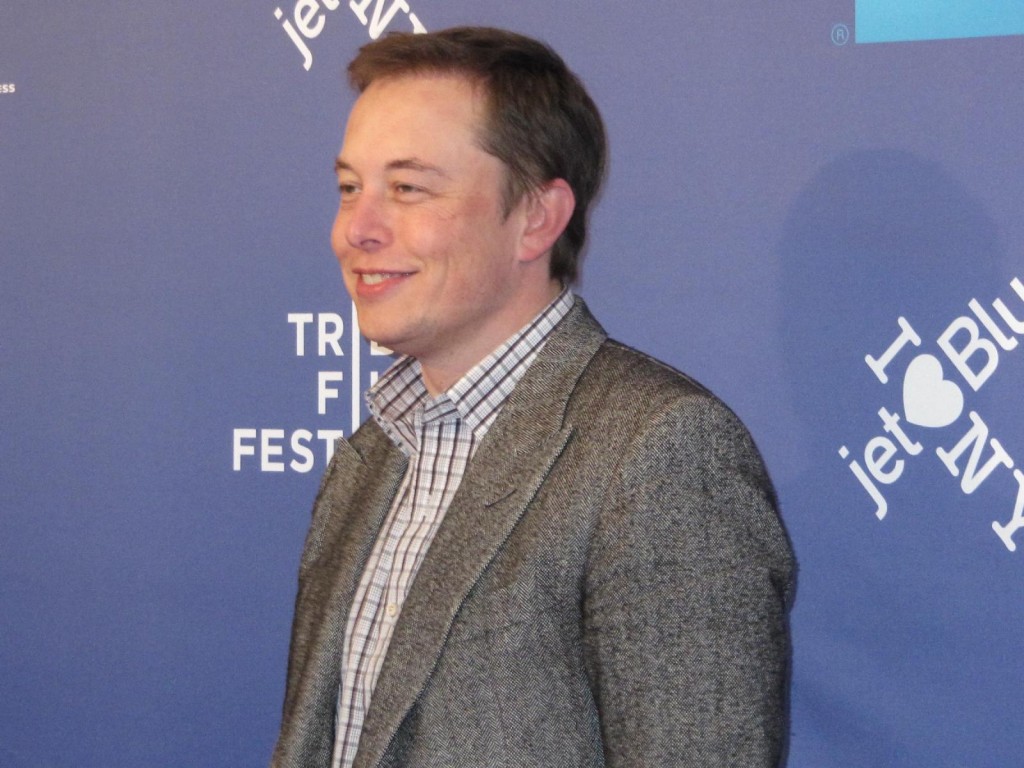Electric-car maker Tesla is on a roll--its first quarter was profitable, its stock price is soaring, and Consumer Reports gave its Model S a rave review.
That has led many writers to compare the company to Apple Inc. [NSDQ:AAPL].
Now one analyst has taken it further: In a Bloomberg column, Chamath Palihapitiya suggests that Apple should simply buy Tesla Motors [NSDQ:TSLA].
And, Palihapitiya writes, if Steve Jobs were still alive, he would have done so. He argues:
The right move would be for Apple to enter the car space, buy Tesla and make Elon Musk the CEO. Cook could move back to COO. Obviously this will never happen. The market is too big. Tesla is too good, and Cook is probably too weak to do something this radical.
Apple has designs on your dashboard, granted, and it is working with carmakers to integrate its Siri Q+A service into car infotainment systems.
Apple also has the money: Even assuming a 100-percent price premium over Tesla's current market capitalization of $8.8 billion, buying Tesla would cost Apple only 12 percent of its $145-billion cash hoard.
So it's doable.
But it would probably be a spectacularly bad idea.
Writing about Apple's rumored plans to enter the television market, Palihapitiya writes, "TVs will probably turn out to be a very difficult product category."
So cars, meanwhile, would be easy?
Apple designs remarkable consumer electronic products that share the following characteristics:
- Product cycles of 18 to 36 months
- Superb, sometimes revolutionary user interfaces
- Outsourced manufacturing in developing countries
- Core technology is low-power consumer electronics
- Size is small enough to carry; weight is a few ounces to 30 pounds
Tesla's designs, on the other hand, differ rather a lot from Apple's:
- Product cycles of 3 to 7 years
- User-interface innovation confined to infotainment; steering, brakes, accelerator all conventional
- Manufacturing done in-house by automakers of scale
- Core technology is energy storage in battery, and high-power electric motor-generator plus power electronics
- Size is more than 16 feet long; weight is more than 2 tons
The similarities and shared expertise are ... where, exactly?
Sure, Apple tends to enter new categories within its core industry.

'Revenge of the Electric Car' premiere: Tesla Motors CEO Elon Musk on red carpet
But we'd suggest that going into carmaking would be roughly as smart as Apple going into, say, deep-sea oil exploration--another industry where electronics and sensors are increasingly key to success.
We've long argued that Tesla is not likely to remain independent as a carmaker. At some point, we believe, it will be bought by one of perhaps a dozen global automakers.
By far the most logical candidates are Daimler and Toyota, each of which owns a minority share of Tesla. An outlier might also be its lithium-ion cell supplier, which also has a stake in the company.
But may we suggest a different acquirer? What about Ford Motor Company [NYSE:F]?
Ford is at best lackluster about the prospects of battery-electric vehicles.
Its Ford Focus Electric is apparently only a compliance car, and the company has said in the past it doesn't expect it to sell well--a self-fulfilling prophecy, apparently.
But we note that company chairman Bill Ford (whose name is on the building) recently expressed his admiration for Tesla and its recent successes.
"My hat’s off to them,” Ford said at a Los Angeles conference last Tuesday, although the company needs to be "mindful as they scale.”

1903 Ford Model A Rear Entry Tonneau and Bill Ford, Jr.
Of the big global companies, Toyota has placed its bets on hybrids (Ford makes some too, but only a fraction of Toyota's volume). GM has its Chevy Volt, Nissan its all-electric Leaf and other battery cars coming, and Volkswagen is doing a bit of everything.
It's a sign of Detroit's inherent conservatism that Ford jokingly called himself as a "Bolshevik" for pledging that the company would raise fuel efficiency 25 percent from 2000 to 2005--a commitment it did not keep.
If Ford came to see plug-in electric cars as necessary to comply with increasingly stringent global fuel-efficiency rules, buying Tesla could catapult it to the front of the crowd.
That makes more sense, at least, than an Apple acquisition.
As Ford cautioned, “Running a car company is different than running a tech company.”
+++++++++++













